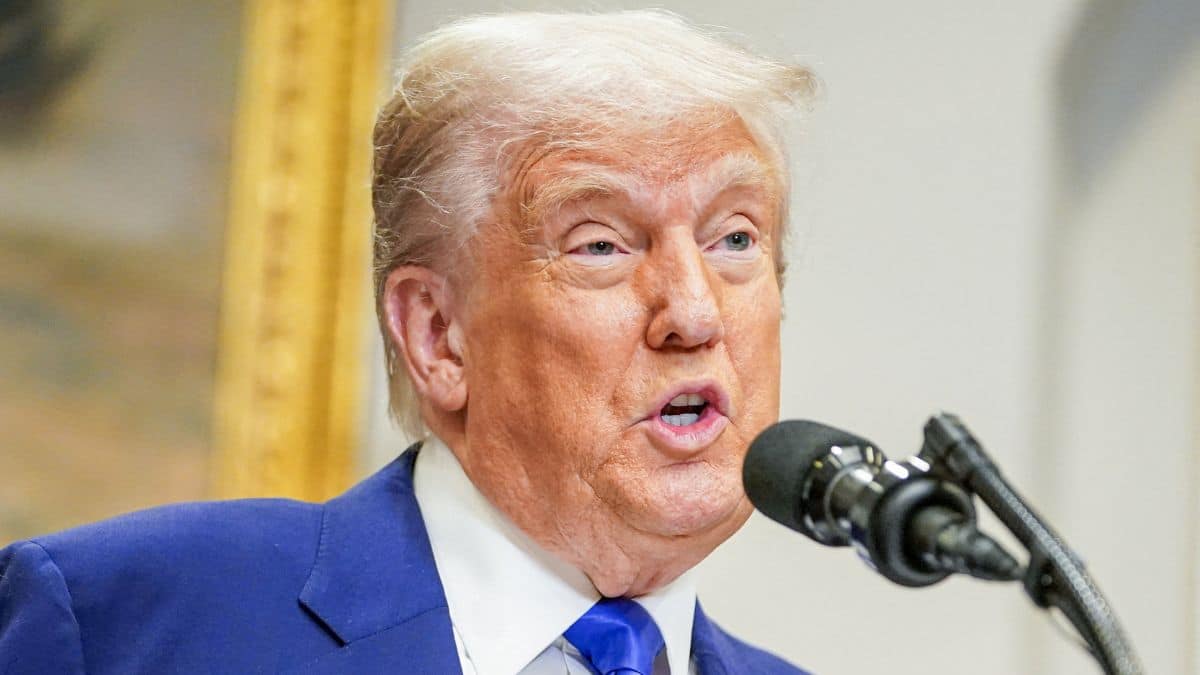<p>The US Supreme Court on Wednesday cast fresh doubt on the legality of President Donald Trump’s global tariff regime, raising questions that could reshape how much power presidents wield in international trade. </p>
<p>The justices, spanning both conservative and liberal camps, expressed deep scepticism about whether a decades-old law allows Trump to levy tariffs as freely as he has claimed, reported Reuters.</p>
<h2><strong>Testing the Limits of Presidential Power</strong></h2>
<p>The court heard over two and a half hours of arguments in what has become a defining test of Trump’s executive authority. The case hinges on his use of the International Emergency Economic Powers Act (IEEPA), a 1977 law typically reserved for national emergencies, to justify tariffs on nearly every major trading partner. Lower courts had already ruled that Trump’s use of IEEPA overstepped his authority, prompting the administration’s appeal.</p>
<p>Chief Justice John Roberts, a conservative, pointedly told the government’s lawyer, US Solicitor General D John Sauer, that imposing tariffs amounts to taxing Americans, “the core power of Congress.” </p>
<p>He suggested the court might apply its “major questions” doctrine, which requires Congress to clearly authorise executive actions of great economic and political consequence. “The justification is being used for a power to impose tariffs on any product, from any country, in any amount, for any length of time,” Roberts said, calling it “major authority” that may not fit the law’s original intent.</p>
<p>The justices’ concerns cut across ideological lines. Liberal Justice Ketanji Brown Jackson argued that Congress had designed IEEPA to limit, not expand, presidential power. “It’s pretty clear that Congress was trying to constrain the emergency powers of the president,” she said. </p>
<p>Meanwhile, conservative Justice Amy Coney Barrett challenged Sauer to cite any historical precedent for using the phrase “regulate importation” to justify imposing tariffs, an example he struggled to provide.</p>
<h2><strong>The Case for Trump’s Tariffs</strong></h2>
<p>Trump, who has framed tariffs as both an economic weapon and a diplomatic tool, has urged the court to uphold his sweeping powers. He invoked IEEPA by declaring that America’s trade deficits posed an “unusual and extraordinary threat” to national security, language normally used to justify sanctions or asset freezes against hostile nations. The administration argues that tariffs have strengthened the country’s negotiating hand and protected jobs.</p>
<p>Sauer told the justices that removing the tariffs could lead to “ruthless trade retaliation” from other countries and weaken the United States economically and strategically. </p>
<p>Between February and September this year, tariffs brought in an estimated $89 billion in revenue, according to data from the US Customs and Border Protection agency.</p>
<p>Yet critics say Trump’s trade war has alienated allies, disrupted global markets, and contributed to economic uncertainty. Twelve states, mostly Democratic-led, and several US businesses have challenged the tariffs, contending that the president has intruded on powers constitutionally reserved for Congress.</p>
<h2><strong>A Divided Bench, High Stakes Ahead</strong></h2>
<p>While Roberts’ questions reflected scepticism, other conservative justices signalled potential sympathy for Trump’s case. Justice Brett Kavanaugh noted that President Richard Nixon had once imposed worldwide tariffs under IEEPA’s predecessor law, suggesting some historical precedent. He remarked that “foreign affairs is a core power of the executive,” a point also raised by Roberts when questioning lawyer Neal Katyal, who represents the private business challengers.</p>
<p>Justice Neil Gorsuch, however, warned against granting presidents too much unchecked authority, asking, “What would prohibit Congress from just abdicating all responsibility to regulate foreign commerce, or for that matter, declare war, to the president?” His line of questioning reflected concerns about maintaining the constitutional balance of powers.</p>
<p>The Supreme Court, which has a 6-3 conservative majority, typically takes months to issue rulings. But the administration has urged a swift decision. Treasury Secretary Scott Bessent, who attended the hearing, told Fox Business he felt “very, very optimistic” after the arguments and said that if the ruling goes against Trump, other legal routes will be explored to preserve the tariffs.</p>
World
Global Tariffs Under Fire: Supreme Court Examines Trump’s Trade Powers
by aweeincm

Recent Post
Man Dies By Suicide Over Viral Video Of Public Urination In Maharashtra
A 28-year-old man died by suicide after a video of ... Read more
Video: 2 Killed As Speeding Bike Crashes Into Truck At Andhra Intersection
Two young men lost their lives in a horrific road ... Read more
Woman Techie, Jailed In Gujarat, Behind Bomb Hoaxes To Bengaluru Schools
In a major breakthrough into the growing menace of bomb ... Read more
“What’s Your Skincare Routine,” Harleen Deol Asks PM Modi. His Reply
As Prime Minister Modi met and commended the Indian women’s ... Read more